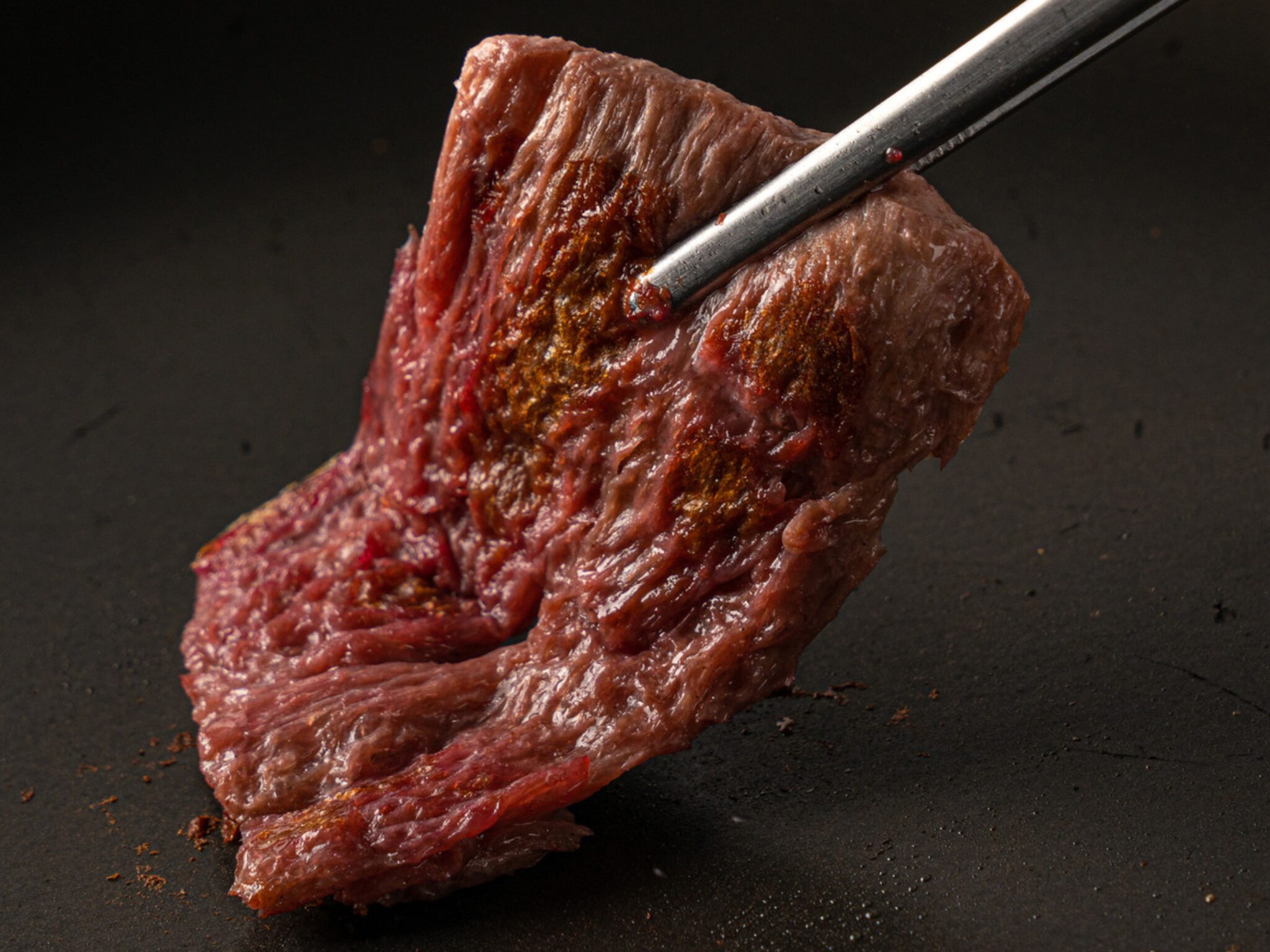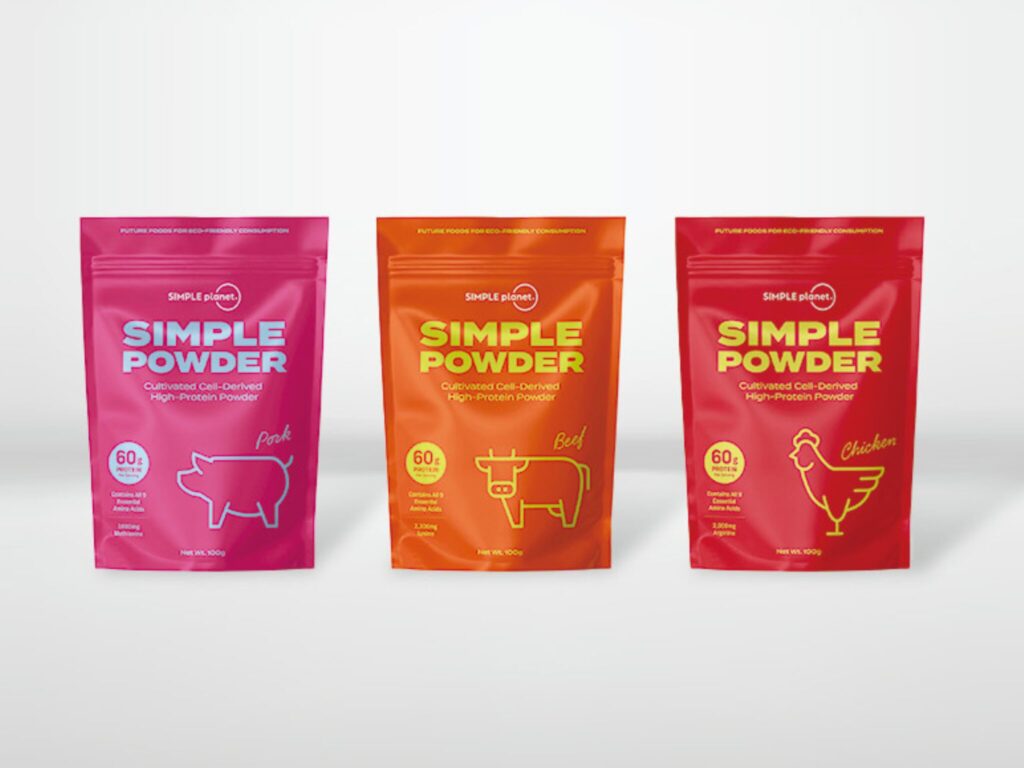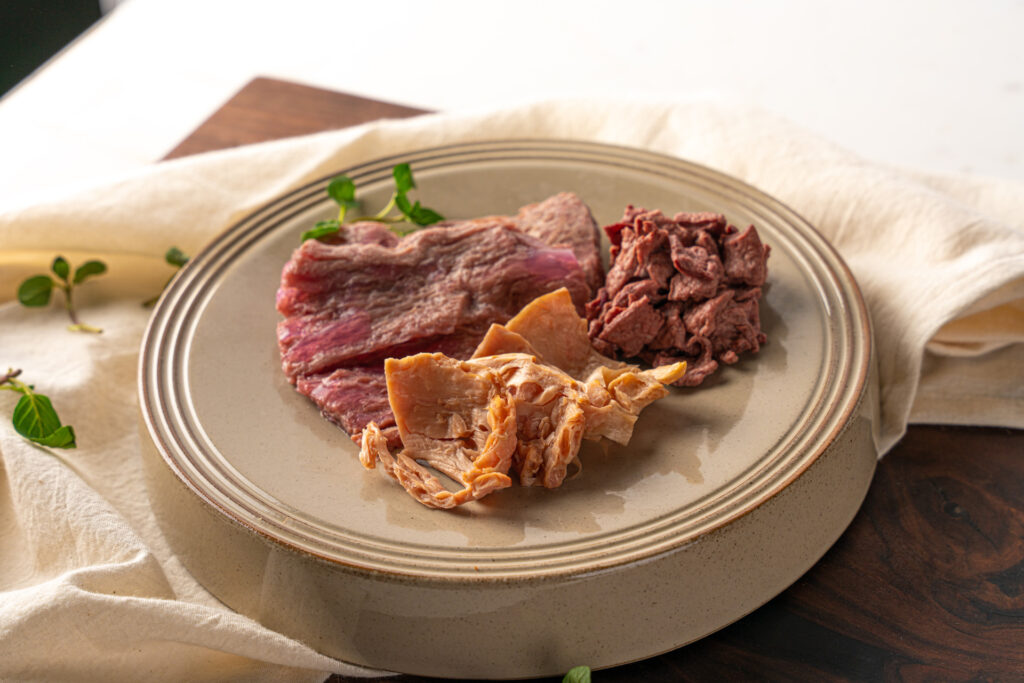
Korean food tech startup Simple Planet has received ₩11B ($8.1M) for a government project to boost food security, and targets regulatory approval for its cultivated meat ingredients next year.
South Koreans could be eating cultivated meat as soon as next year, with Seoul-based Simple Planet gearing up to file for regulatory approval in the country, months after it began inviting applications for the same.
“Simple Planet is applying for regulatory approval from the Ministry of Food and Drug Safety, aiming for approval in the first half of next year,” co-founder and CEO Dominic Jeong told Green Queen. The company will sell products under its Balboa Kitchen brand.
“Consumers will be able to taste or receive prototypes in the second half of next year. The target markets include not only Korea, but also North America and Southeast Asia.”
The development comes after Simple Planet was selected for a ₩11B ($8.1M) grant by the government, led by the Korea Institute of Planning and Evaluation for Technology in Food, Agriculture and Forestry (IPET), Korea Agriculture Technology Promotion Agency (KOAT), and Korea Institute of Marine Science and Technology Promotion (KIMST).
The funding is dedicated towards a project that aims to develop the food tech sector in South Korea to bolster sustainable and stable food production in the future. Simple Planet, which makes ingredients for cultivated meat like powders and fats, will use the capital to further expand its R&D and commercialisation processes.
Simple Planet working on 13 cell lines

The project durations differ based on the department. The KOAT initiative will focus on creating cultivated foods to replace animal-derived ingredients and last three years. Under the IPET, also a three-year project, it will work on establishing pluripotent stem cell lines and differentiation and developing mass culture technology for cultivated meat. The KIMST-backed project, meanwhile, is five years long and centres on R&D and production of high-value cultivated seafood.
“Simple Planet’s expertise in cell separation, proliferation/differentiation, and large-scale production through suspension culture has been a key factor in the selection process,” said Jeong. The company was recognised for its cell acquisition technology and suspended cell development platform, the establishment of 13 different specialised cell lines, and the development of serum-free media for cultivated meat.
Instead of making fully developed cuts of meat, Simple Planet is producing protein powders and unsaturated fatty acid pastes for cultivated meat products. “The focus is on cattle, pigs and chickens for livestock, and eel, halibut, rainbow trout, bluefin tuna, squid, pollack and lobster for seafood,” said Jeong. But he added: “There are plans to produce whole cuts in the future.”
The company is also working on duck, flatfish, salmon, king crab and oyster cell lines, and has plans to create a fish cake and seafood powder in the future.
“Our cell-cultured food ingredients can produce diverse customised ingredients including food and functional ingredients with excellent production efficiency, enabling a stable food supply,” said Jeong.
Cultivated meat developments escalating in South Korea

The startup has bagged over $7.5M in funding to date, following a $6M pre-Series A round earlier this year. It has six bioreactors of varying sizes, with a total capacity of 1,150 litres. It’s currently building an 18,000 sq ft facility in (expected to be operational by 2025) – but Simple Planet has massive scale-up ambitions, with plans to start producing in Singapore, Thailand, India and the US by the end of 2025, with a targeted capacity of 20,000 litres.
Scaling up will help the company bring costs down, an effort that has been facilitated by its switch to food-grade media from fetal bovine serum. This could potentially reduce its production costs by 99.8%, from $430 to $1.5 per litre. “The current production cost is around ₩200,000/kg [$148] and the consumer price is set at ₩70,000/kg [$52],” said Jeong. “The plan is to reduce the cost through process technology development.”
This is crucial if cultivated meat is to take off in the country, with only 12% of Koreans willing to pay ₩1,000-3,000 (74 cents to $2.2) more per 100g of cultivated meat. On the contrary, 57% would eat cultivated pork if it’s cheaper than its conventional counterpart, and 25% would do so for beef too.
Speaking of taking off, cultivated meat has gained rapid momentum in the country. In February, the Ministry of Food and Drug Safety established a framework for regulatory approval of these proteins. The process costs ₩45M ($34,000) and is expected to take up to 270 working days.
And last month, the government created a regulatory-free special zone designed for the development of cultivated foods in the eastern province of Gyeongsangbuk-do. It harbours 10 startups that are working towards the commercialisation of cultivated meat.
Additionally, the Ministry of Oceans and Fisheries announced this month that it will invest ₩28.6B ($21M) in research funding for its plant-based and cultivated seafood tech. “Simple Planet’s view is that the high-value marine species will become easily accessible to consumers, and the project is seen as a necessary investment for the future, as it can replace endangered species,” said Jeong.
The post Simple Planet Eyes 2025 Regulatory Approval in South Korea After $8M Government Grant for Cultivated Meat appeared first on Green Queen.
This post was originally published on Green Queen.